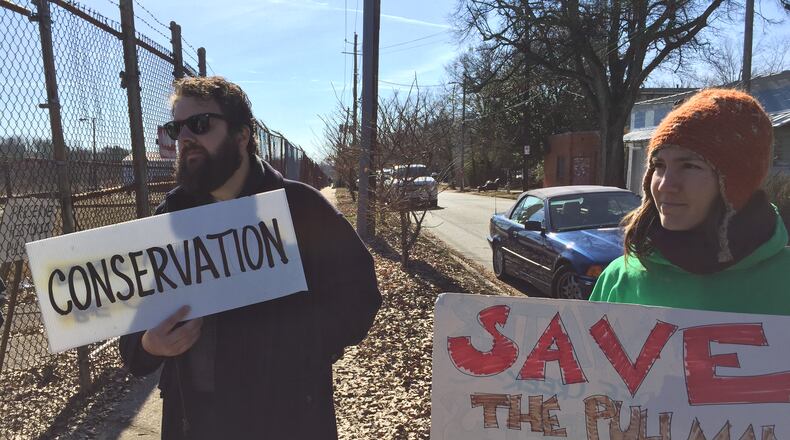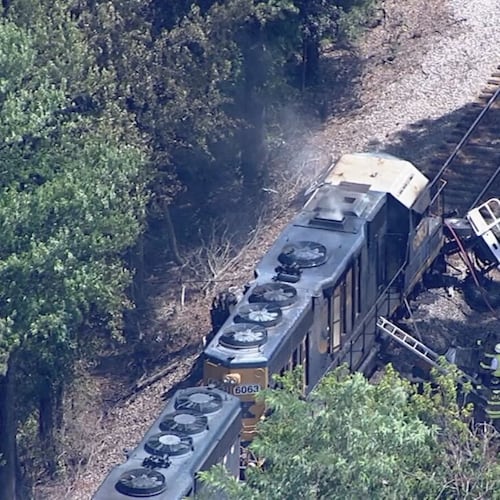The state of Georgia’s plan to sell Pullman Yard, an abandoned train maintenance facility on roughly 27 acres in Atlanta’s Kirkwood community, was met Tuesday with protests from residents in neighborhoods surrounding the site.
Their beef: They want the state and developers to include preservation of the century-old buildings in any redevelopment of the property. That includes keeping intact almost 10 acres of forest along Hardee Creek on the property’s eastern border.
“Definitely our purpose today is to show our absolute conviction that this site should be respected and preserved,” said Jim Kulstad, one of the leaders of the protest of about three dozen residents from Kirkwood, Edgewood, Candler Park and other nearby neighborhoods.
“We know that this area has become extremely attractive for condominiums and townhomes, but we feel this site is so special,” Kulstad said.
The state, which tried unsuccessfully to drum up interest in the property during the Great Recession, is seeking bids starting at $5.6 million and recently began allowing developers to walk through the property, which is usually closed to visitors.
Pullman Yard runs along Rogers Street between DeKalb Avenue and Hosea L. Williams Drive. It opened in 1900 originally as the home of Pratt Engineering and Machine Company, later served as a munitions factory during WWI, and was bought by Pullman Rail in 1922 as a car maintenance facility.
The state of Georgia acquired the graffiti-scarred property in the 1990's. The 100,000-square-foot buildings most recently served as sets in "The Hunger Games" and "Fast and Furious" movies.
The Atlanta City Council in August sought to protect the property by nominating it as an official city Historic Building and Site. But the state challenged the designation in October, saying Atlanta did not have authority to make such a move on state-owned property.
Neighbors have attempted to purchase the property through Atlanta Contact Point, a nonprofit working on a “Pullman Preserve” redevelopment plan that would save the older buildings and add a farm, nature center and other ideas, said David Epstein, Contact Point’s executive director. So far the group has not had success, he said.
Protester Christina Gibson, canopy conservation coordinator for Trees Atlanta, said the forested area includes rare ground cover vegetation not often found in Atlanta as well as serving as a home to great horned owls.
“There are also some very old, very large trees and a robust diverse assortment of tree species in those woods,” she said. “We believe that it’s important that whoever develops this site protects the integrity of the forest.”
Greg Ramsey said it would be a shame for Atlanta to lose another connection to its rail past.
“The historic buildings are some of the last rail buildings in Atlanta that have not been either torn down or undergone some of kind of adaptive reuse, and that makes it of singular importance in the city,” he said.
About the Author
The Latest
Featured

